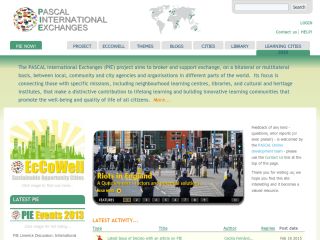UNESCO IIEP Policy Brief | Cities and Education 2030: Research in France
PASCAL subscribers will read with interest this new briefing paper from UNESCO IIEP from their Cities and Education 2030 programme. In a further phase of work, we are collaborating with IIEP through our Centre for Sustainable Healthy Learning Cities and Neighbourhood partners in Bangladesh, Philippines and Rwanda, and LCN city, Medellin.
Cities play a leading role in the urgent need to implement the United Nations’ Sustainable Development Goals (SDGs) and particularly SDG 4, which aims to ensure universal lifelong access to quality education.
Committed to forming close relationships with their citizens, cities are privileged partners of ministries of education and develop education strategies that reflect the needs of their locality. Yet the role of cities in planning and managing education is still not well known.
The ‘Cities and Education 2030’ research programme, conducted by UNESCO’s International Institute for Educational Planning (IIEP), specifically aims to identify the assets of cities and the major challenges they face in the implementation of education policies.
This programme also aims to stimulate the sharing of experiences and strategies between cities and countries.
Between 2018 and 2019, an IIEP research team visited the French cities of Grigny (28,265 inhabitants), Ivry-sur-Seine (63,309), Orvault (26,924) and Saint-Quentin (53,856) to study the design, implementation and management of their education strategies.
In each city, around thirty interviews were conducted with a diverse panel of actors from the local education community, including municipal staff, representatives of the Ministry of National Education (inspectors, school Cities and Education 2030: Research in France © Shutterstock principals and teaching staff), parents, pupils and representatives of civil society.
This policy brief presents the main lessons learned and recommendations drawn from IIEP’s research in order to help cities achieve SDG 4 through relevant and optimal planning.
Mayors are willing to get involved in education. I don’t think it’s seen as an obligation, but rather as an obvious course of action; no community team can afford to overlook its pupils.
The full policy Brief is featured below and attached...
| Attachment | Size |
|---|---|
| cities_and_education_2030_research_in_france_1635294230-web.pdf | 521.69 KB |
 Printer-friendly version
Printer-friendly version- Login to post comments






